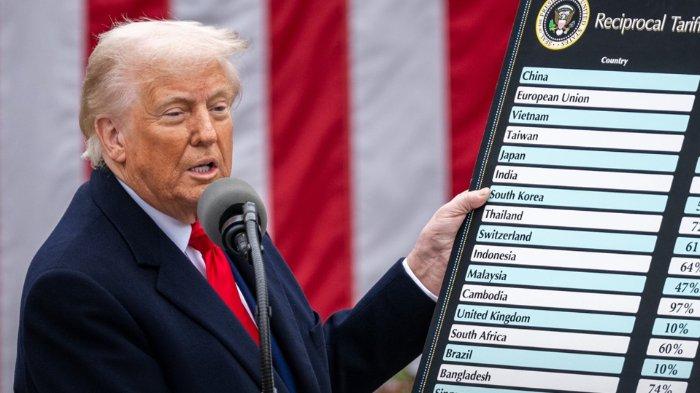In response to the recent imposition of a 32% import tariff by the United States, the Indonesian government is charting a course toward strengthening its digital economy. This strategic shift aims to mitigate the adverse effects of the tariffs and position Indonesia as a resilient player in the global market.
Understanding the U.S. Import Tariffs
On April 2, 2025, President Donald Trump announced a comprehensive tariff policy, introducing a universal 10% tariff on all imports and additional country-specific tariffs targeting nations with significant trade surpluses with the U.S. Indonesia was notably subjected to a 32% tariff, impacting key export sectors such as apparel, electronics, and footwear. The rationale behind these tariffs, as articulated by the Trump administration, is to address perceived trade imbalances and protect domestic industries.
Indonesia's Diplomatic Approach
In light of these developments, Indonesia has opted for a non-retaliatory stance, emphasizing diplomacy and negotiations to resolve trade disputes. Chief Economic Minister Airlangga Hartarto stated that this approach considers the long-term interests of bilateral trade relations, investment climate, and national economic stability. The government plans to support sectors potentially impacted by the tariffs and gather input from businesses to formulate strategic responses.
Emphasizing the Digital Economy
Recognizing the transformative potential of the digital economy, Indonesia is intensifying efforts to develop this sector as a buffer against external economic shocks. The digital economy encompasses various industries, including e-commerce, fintech, digital services, and technology startups, all of which have shown robust growth in recent years.
Growth of E-Commerce
Indonesia's e-commerce sector has experienced exponential growth, driven by increasing internet penetration and a tech-savvy young population. Platforms such as Tokopedia, Bukalapak, and Shopee have become household names, facilitating transactions worth billions of dollars annually. The government aims to further bolster this sector by implementing supportive policies and infrastructure development.
Advancements in Fintech
Financial technology (fintech) is another area witnessing significant advancements. Innovations in digital payments, lending, and investment platforms have enhanced financial inclusion, allowing more Indonesians access to financial services. Regulatory frameworks are being adapted to ensure a conducive environment for fintech growth while safeguarding consumer interests.
Support for Tech Startups
Indonesia's startup ecosystem is vibrant, with numerous tech startups emerging across various sectors. The government's focus includes providing funding opportunities, mentorship programs, and creating a regulatory environment that fosters innovation and entrepreneurship.
Policy Measures to Foster Digital Economy
To actualize the vision of a robust digital economy, the Indonesian government is implementing several policy measures:
- Infrastructure Development: Investing in digital infrastructure, including expanding broadband access and improving internet connectivity across the archipelago.
- Regulatory Reforms: Streamlining regulations to facilitate ease of doing business for digital enterprises and protecting intellectual property rights.
- Digital Literacy Programs: Initiating programs to enhance digital skills among the workforce, ensuring a talent pool capable of meeting the demands of the digital economy.
- Incentives for Investment: Offering tax incentives and grants to attract both domestic and foreign investments in the digital sector.
Challenges and Opportunities
While the focus on the digital economy presents numerous opportunities, challenges remain. These include addressing cybersecurity threats, bridging the digital divide between urban and rural areas, and ensuring that regulatory frameworks keep pace with technological advancements. However, with concerted efforts from both the public and private sectors, Indonesia is poised to overcome these challenges and harness the full potential of its digital economy.
Conclusion
Indonesia's strategic emphasis on developing its digital economy serves as a proactive response to external economic pressures, such as the U.S. import tariffs. By fostering a conducive environment for digital industries, Indonesia aims to diversify its economic base, enhance resilience, and secure sustainable growth in the digital era.
Read More






 Friday, 27-02-26
Friday, 27-02-26







